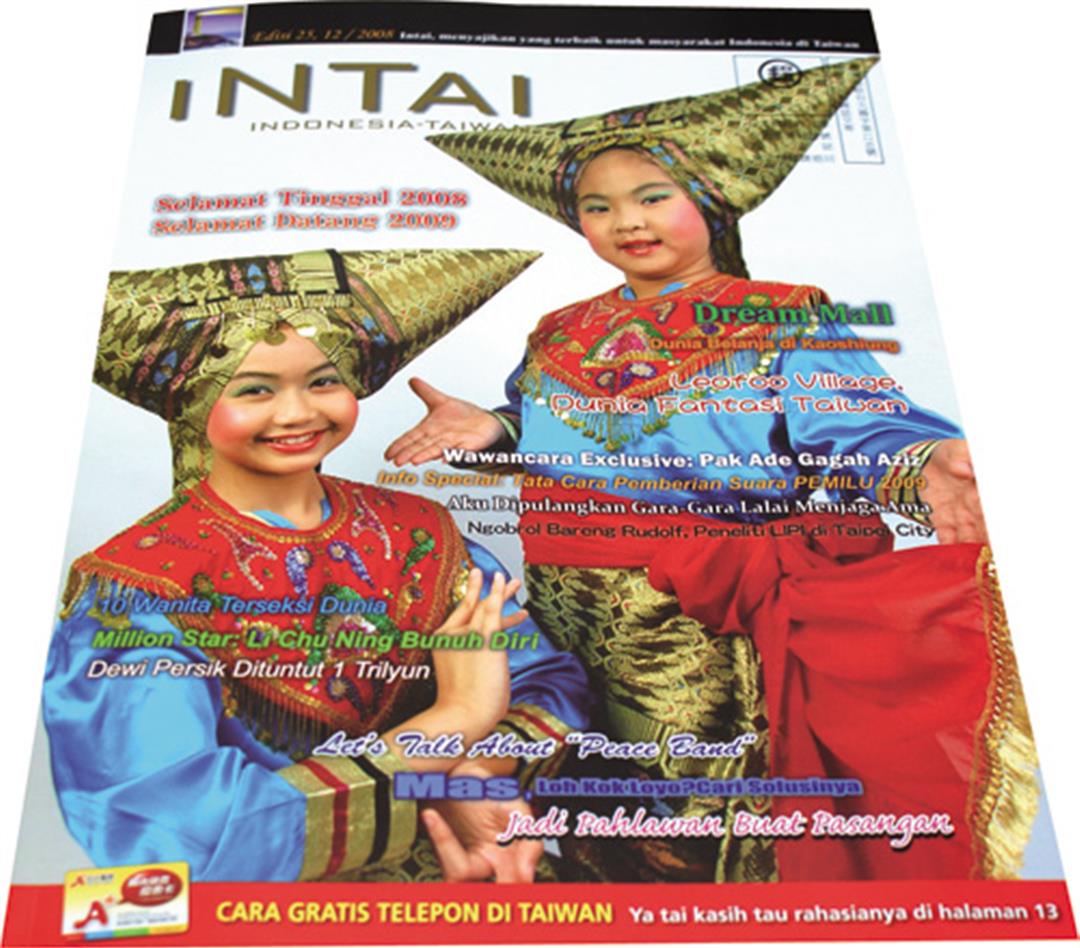Cultural conflicts
After coming to Taiwan, Deyantono has discovered that Taiwanese are not only prejudiced against Southeast Asian workers and brides, but also against the Southeast-Asian immigrant community in general. For instance, INTAI recently interviewed a researcher at the Indonesian Institute of Sciences who "came to Taiwan to conduct research about the lives of Indonesians here." The researcher scurried around Taipei for two weeks and discovered that Indonesia was regarded as a poor and backward nation here. He even encountered a taxi driver who abruptly asked him: "Are there cars in Indonesia? Have you ever seen a department store?" Suffering from culture shock, the researcher offered this suggestion to his compatriots living in Taiwan: "Please don't become embarrassed of your own status because of the unfriendly treatment you receive from a small number of people."
Deyantono, who feels similarly, goes further, calling for people to "Please stop differentiating among Indonesians. All Indonesians, whether ethnic Indonesian or ethnic Chinese, need to help each other and cooperate for our country's future!" In fact, this sentiment was the original motivation for Deyantono to write his novel.
Yet, living in Taipei has also caused him to shout: "I was tricked." "Originally I only thought I would live here for a year or two. I never expected that I wouldn't leave!" Apart from the convenience of life here and the exceedingly friendly people once you get to know them, one reason he can't leave is his then girlfriend (and now wife) Ecysusanty, who is likewise an ethnic Chinese Indonesian. Another important plus to living in Taipei: "I can make friends with people of many different nationalities here!"
Deyantono once conducted a survey and discovered that his customers hailed from more than 40 different nations. The store is one of the first places newly arrived Indonesians check out. Deyantono loves the feeling of being a "mini United Nations." "If I go back to Indonesia," he asks, "where will I be able to find this kind of cosmopolitan environment?"
Here's how it unfolded: After finishing his studies, Deyantono remained in Taiwan on a business visa. Then, the good reception his first novel received prompted him to go a step further toward realizing his ideal of publishing a magazine.

The people featured on the cover of INTAI include Indonesians from all walks of life-male and female, young and old. The first issue (far left) had only 16 pages. The magazine has become a 100-page professionally designed publication with outstanding content. The cover of the second issue (second from left) featured Tony Thamsir, popular host of an Indonesian-language radio program produced by the Central Broadcasting System.